
Scot McKnight
Scot McKnight is the Julius R. Mantey Chair of New Testament at Northern Seminary (Lisle, IL). The author of numerous commentaries, he is a world-renowned speaker, writer, professor, and equipper of the Church. McKnight is a recognized authority on the historical Jesus, early Christianity, and the New Testament. The reviews and recommendations on this site under his name are drawn from his series of blog posts entitled "Pastor's Bookshelf."
Occupation
Julius R. Mantey Chair of New Testament at Northern Seminary
Education
PhD (University of Nottingham)
Libraries
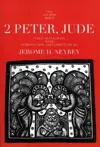

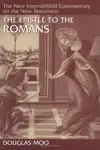

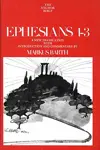


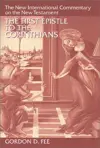

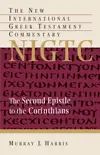

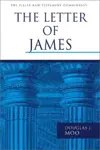

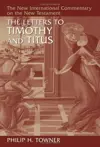

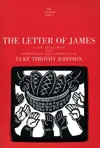

![Colossians, Philemon [Withdrawn]](https://bestcommentaries.com/images/bookthumbs/4019-thumb.webp)
![Colossians, Philemon [Withdrawn]](https://bestcommentaries.com/images/bookthumbs/4019-thumb.webp)
Reviews
James [Withdrawn]. EEC. Lexham Press, 2012.
Varner's commentary is so complete one can get by with this commentary alone! It sketches the significance of the man James, sketches the exegetical options, sorts out primary evidence, examines each text in light of larger themes in biblical theology, draws even-handed and compelling conclusions, and so puts on the plate all we need to read, interpret, and live the message of James.
The Gospel of John. NICNT. Eerdmans, 2010.
Here’s what I will say: this Commentary will become standard; it is both conservative and original — it is exegetical, readable, and massively learned. What I like most is that Ramsey’s Commentary is really his own reading of the text and neither a summation or critical interaction with what others have said. It is more fulsome than those of late — Beasley-Murray, Carson, Koestenberger — and yet the G John deserves fulsomeness, and only Craig Keener (a student of Ramsey’s) has a commentary that rivals completeness. Not only is this Gospel 21 chps long, it is loaded with terms and themes that cry out for fuller explanation. Brief commentaries don’t do the job.
I predict it will be the go-to Commentary for expository preachers for at least a decade, perhaps more. I know this: it will my first, and I just bumped it ahead of R.E. Brown’s work on my shelf.
[Full Review]
James. ZECNT. Zondervan, 2008.
Zondervan has a brand spankin' new series that will be of use to pastors who want to keep up with their exegesis, and Craig Blomberg writes this with an up and coming James scholar, Mariam Kamell
[Full Review]
The Letter of James. PNTC. Eerdmans, 2000.
My former teacher and colleague, DJ Moo, The Letter of James (Pillar New Testament Commentary) has two commentaries on James and I think this one in the Pillar series is one of the best in that series.
[Full Review]
Community of the Wise: The Letter of James. Trinity Press International, 1997.
All scholars know that one of the finer commentaries on James is by Rob Wall
[Full Review]
The Letter of James. AYB. Yale University Press, 1995.
The Anchor Bible by LT Johnson is loaded with delicate observations about word studies as he examines James in his Greco-Roman context.
[Full Review]
The Epistle of James. NIGTC. Eerdmans, 1982.
Davids, whose distinctive contribution was to see James as having gone through a redaction or two. I'm not convinced of his theory on this, but I am convinced that James' text is not a simple linear piece of logic
[Full Review]
1, 2, and 3 John (Rev. ed.). WBC. Zondervan Academic, 2008.
It seems unfair to list this commentary last, but here is another really good commentary
[Full Review]
1, 2, 3 John: A Handbook on the Greek Text. BHGNT. Baylor University Press, 2004.
A fresh approach from Baylor, one rooted in observations of the Greek text, begins with Martin Culy
[Full Review]
The Epistles of John. NICNT. Eerdmans, 1978.
One of evangelicalism's finest scholars, I.H. Marshall, writes good commentaries and has a rock-solid commonsens
[Full Review]
The Letters of John. TNTC. InterVarsity Press, 1988.
A standard that won't go away
[Full Review]
I, II, and III John. NTL. Westminster John Knox, 2008.
A new and useful commentary, with a sensitivity to early Christian identity is Judith Lieu
[Full Review]
The Epistles of John. AYB. Yale University Press, 1982.
Surely the most complete, if not also at times speculative, commentary is that of Raymond E. Brown
[Full Review]
The Book of Revelation (Rev. ed.). NICNT. Eerdmans, 1997.
This commentary took evangelicals away from silly speculation to a more serious interaction with the text of Revelation
[Full Review]
The Book of Revelation. NIGTC. Eerdmans, 1998.
Now only slightly dated, but one of the first to which I turn is G. Beale
[Full Review]
The Revelation to John. InterVarsity Press, 2005.
A readable commentary by a life-time scholar on John's writing is S. Smalley
[Full Review]
Revelation. BECNT. Baker Academic, 2002.
At the other end of the spectrum because it always has its eye on the church and on the preacher and on theology, see G. Osborne
[Full Review]
Revelation. 3 Vols. WBC. Thomas Nelson, 1997.
The most extensive, historically-oriented, but theologically disinterested commentary on Revelation is the three-volume set by D. Aune
[Full Review]
The Epistles of Peter and of Jude. BNTC. Hendrickson, 1993.
The first time I taught 1 Peter I discovered the quality of insight (and prose) of JND Kelly's commentary on 1-2 Peter and Jude, and I still turn to this commentary every time I consult commentaries on any of these letters
[Full Review]
2 Peter and Jude. WBC. Thomas Nelson, 1983.
R Bauckham's commentary on 2 Peter and Jude was ground-breaking in completeness and sensitivity to the Jewish context, drawing these two letters out of worn down theological diatribes and back into original contexts
[Full Review]
1 Peter. WBC. Thomas Nelson, 1988.
It feels like an injustice to postpone a commendation of J Ramsey Michaels' exceptional commentary on 1 Peter to third place, but the competition is stiff; you can't go wrong with Michaels
[Full Review]
1 Peter. Herm. Fortress Press, 1996.
PJ Achtemeier's commentary is another landmark by a veteran NT scholar; complete, exegetical and theologically alert.
[Full Review]
1 Peter. AYB. Yale University Press, 2001.
No commentary is as complete as JH Elliott on 1 Peter, and it is the result of a career of studies on the letter.
[Full Review]
Hebrews. Herm. Fortress Press, 1989.
I begin with Harold Attridge, in part because I worked through it carefully with a class years back when it first appeared
[Full Review]
The Pastoral Epistles. ICC. T&T Clark, 1999.
From the evangelical side, I turn to (the incredibly expensive) commentary by I. Howard Marshall
[Full Review]
The Letters to Timothy and Titus. NICNT. Eerdmans, 2006.
And at the top of the heap, and the only one you need if you have it, is Phil Towner
[Full Review]
1 and 2 Thessalonians. WBC. Thomas Nelson, 1982.
Because it's my old stand-by, I turn first to F.F. Bruce,
[Full Review]
The Epistles to the Colossians and to Philemon. NIGTC. Eerdmans, 1996.
Then I turn to James D.G. Dunn, The Epistles to the Colossians and to Philemon: A Commentary on the Greek Text (New International Greek Testament Commentary) . As always, rigorous, creative, and theologically suggestive.
[Full Review]
Colossians and Philemon. EGGNT. B&H Academic, 2010.
Then I turn to my teacher and former colleague's commentary, though it is nearly entirely constrained by syntax and grammar. Murray Harris, Exegetical Guide to the Greek New Testament: Colossians and Philemon. If you can read this commentary and understand what he is saying, you are educated in exegesis.
[Full Review]
Colossians, Philemon [Withdrawn]. WBC. Thomas Nelson, 1982.
I taught Colossians for years, used a commentary I really liked, and so I still turn first to Peter O'Brien, Word Biblical Commentary Vol. 44, Colossians-Philemon. Exegetically rigorous and theologically sensitive.
[Full Review]
Philippians: A Commentary in the Wesleyan Tradition. NBBC. Beacon Hill Press of Kansas City, 2009.
Recently I came across Dean Fleming, NBBC, Philippians: A Commentary in the Wesleyan Tradition (New Beacon Bible Commentary) , and I have found this commentary clear and useful. This series has three parts to each passage: behind the text, in the text, and from the text.
[Full Review]
Philippians. AYB. Yale University Press, 2008.
The big kahuna for Philippians -- over 800 pages! -- is John Reumann.
[Full Review]
Philippians (Rev. ed.). WBC. Thomas Nelson, 2004.
The third one is even a little older and now revised, but a goldmine of accuracy and scholarship, and it was written by G.F. Hawthorne
[Full Review]
The Epistle to the Philippians [Withdrawn]. NIGTC. Eerdmans, 1991.
The second one I consult is Peter O'Brien, which has all the characteristics of Fee but is five years older
[Full Review]
Paul's Letter to the Philippians. NICNT. Eerdmans, 1995.
The first commentary I consult on Philippians is Gordon Fee, and I do so in part because he's such a good writer, because he is sensitive to Greek exegesis and because he's theologically alert to the text for preaching and pastoring
[Full Review]
Ephesians. NIVAC. Zondervan, 1996.
There's much to harvest from the above, but there's always something to glean from Klyne Snodgrass
[Full Review]
Ephesians. ICC. T&T Clark, 1998.
If you've got some funds, buy Ernest Best's volume in the ICC series.
[Full Review]
Ephesians. WBC. Thomas Nelson, 1990.
Next I turn to Andrew Lincoln who wrote that commentary at St John's College in Nottingham when I was doing my doctorate at the University, and I often saw Andrew -- I remember standing in the library when he told me he thought Eph 2:8-9 was not Pauline theology -- his commentary is thorough and sensitive to the theological contours.
[Full Review]
Ephesians. 2 Vols. AYB. Yale University Press, 1974.
I like Markus Barth and have ever since college when I spent gobs of time working on Ephesians 4. His was one of the early Anchor Bible commentaries and he managed to find one volume inadequate
[Full Review]
The Epistle to the Romans. NICNT. Eerdmans, 1996.
Third, I shift to my former colleague Doug Moo
[Full Review]
Romans. 2 Vols. WBC. Thomas Nelson, 1988.
Second, I stay in Durham and go to Jimmy Dunn's 2 volumes in the Word series
[Full Review]
Romans. 2 Vols. ICC. T&T Clark, 1975.
I begin, out of habit, with CEB Cranfield's 2 volumes in the ICC series
[Full Review]
Acts. Herm. Fortress Press, 2008.
Finally, I now will be consulting R. Pervo's Hermeneia commentary
[Full Review]
The Acts of the Apostles. ECS. Epworth Press, 1996.
Then I consult Jimmy Dunn's small, but very useful, commentary:
[Full Review]
The Acts of the Apostles: A Socio-Rhetorical Commentary. SRC. Eerdmans, 1997.
Then I go to Ben Witherington
[Full Review]
The Acts of the Apostles. AYB. Yale University Press, 1998.
Then I go to J.A. Fitzmyer's volume in the Anchor Bible Commentary
[Full Review]
Acts. 2 Vols. ICC. T&T Clark, 1994.
But I don't go to him first anymore. I now began with C.K. Barrett's 2-volume, meticulously-researched ICC volumes
[Full Review]
The Book of Acts (Rev. ed.). NICNT. Eerdmans, 1988.
I begin with FF Bruce because he was the first one I read
[Full Review]
The Gospel according to John. PNTC. Eerdmans, 1990.
DA Carson, a student of B. Lindars (another John scholar), built his commentary on John in interaction with the text and those who had gone before him
[Full Review]
The Gospel of John: A Commentary: Two Volumes. Hendrickson, 2003.
C. Keener's commentaries are fast becoming favorites for many of us
[Full Review]
John (2nd ed.). WBC. Thomas Nelson, 1999.
GR Beasley-Murray's Word Biblical Commentary is solid and is now in a second edition
[Full Review]
The Gospel according to John (Rev. ed.). NICNT. Eerdmans, 1995.
Leon Morris, the first commentary I ever read on John, still rewards the pastor and student
[Full Review]
The Gospel According to St. John: An Introduction With Commentary and Notes on the Greek Text. Westminster John Knox, 1978.
CK Barrett's commentary is still a must-read
[Full Review]
The Gospel according to John. 2 Vols. AYB. Yale University Press, 1970.
I always look to RE Brown first; it's getting old, but I've learned so much from him I start with his 2-volume commentary
[Full Review]
The Gospel according to Luke. 2 Vols. AYB. Yale University Press, 1985.
Then I go to J. Fitzmyer
[Full Review]
Luke. 3 Vols. WBC. Thomas Nelson, 1989.
Then I go to John Nolland, for whom two volumes was not enough. There are three volumes in his commentary. Now a word for the wise: serious exegesis of this Gospel, which is 24 long chapters, can't be done adequately in short compass. Thus, I don't complain about length
[Full Review]
Luke. 2 Vols. BECNT. Baker Academic, 1994.
Yes, the second one I consult is Darrell Bock. These two scholars are my contemporaries and friends and have been involved in Lukan studies their entire careers.
[Full Review]
The Gospel of Luke. NICNT. Eerdmans, 1997.
It combines wide-ranging reading, a narrative approach, and readable prose.
[Full Review]
The Gospel According to Saint Mark. BNTC. Hendrickson, 1992.
And, I really like Morna Hooker's commentary on Mark; Professor Hooker can write a commentary and just keep her readers in the text and not become aware of how much she knows -- and she knows this stuff very well. Her commentary is a steal
[Full Review]
Mark 8:27–16:20. WBC. Thomas Nelson, 2001.
The next commentary is intense and complete, but it's incomplete in this sense: Bob Guelich, who died way too soon, began the commentary and then Craig Evans finished it.
[Full Review]
Mark 1:1–8:26. WBC. Thomas Nelson, 1989.
The next commentary is intense and complete, but it's incomplete in this sense: Bob Guelich, who died way too soon, began the commentary and then Craig Evans finished it
[Full Review]
The Gospel of Mark. NIGTC. Eerdmans, 2002.
Next I consult R.T. France, who has the capacity to write sound commentaries and the efficiency to get it done -- without it become an exercise in bibliographic endlessness -- I've learned lots from France
[Full Review]
The Gospel of Mark. NICNT. Eerdmans, 1974.
We can lighten up here with a theologically sound commentary, and an old one that I still get lots from: William Lane
[Full Review]
Mark. Herm. Fortress Press, 2007.
Probably the most intense, complete, and scholarly commentary on Mark is by Adela Yarbro Collins
[Full Review]
The Gospel of Matthew. NIGTC. Eerdmans, 2005.
Finally, one can read each of the above and still gain insights from John Nolland
[Full Review]
Matthew. BECNT. Baker Academic, 2008.
Fourth, the new commentary by David Turner is thoughtful and theologically sensitive
[Full Review]
The Gospel of Matthew. NICNT. Eerdmans, 2007.
Third, I recommend R.T. France's new commentary in the NICNT series
[Full Review]
Matthew. 2 Vols. WBC. Thomas Nelson, 1993.
My second recommendation is by Don Hagner, the Word Biblical Commentary.
[Full Review]
Matthew. 3 Vols. ICC. T&T Clark, 1997.
The best, most complete commentary ever written on Matthew is by Dale Allison and W.D. Davies. It's 3 volumes; it's very complete; and it's very, very good. Davies-Allison
[Full Review]
